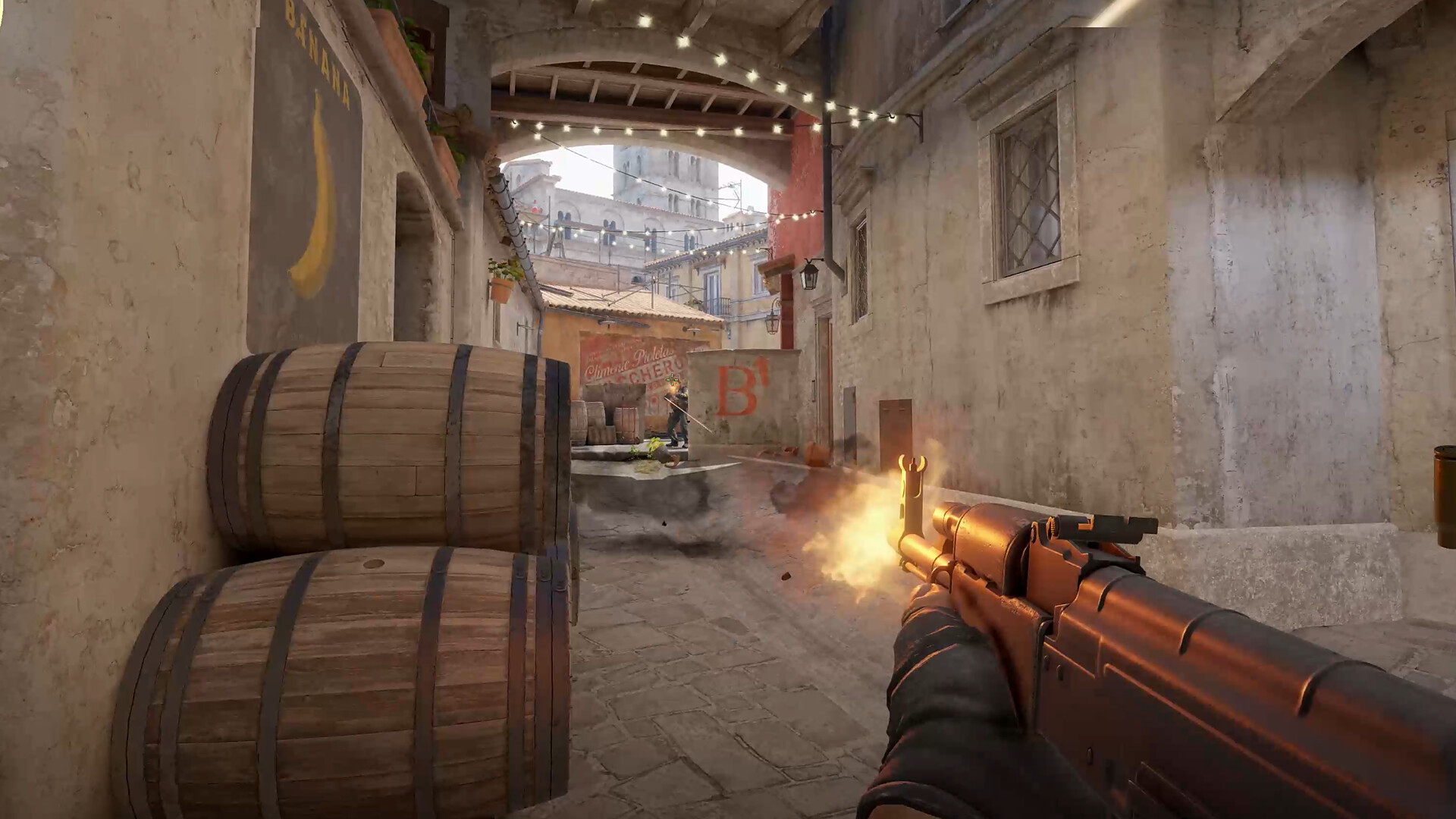Counter-Strike 2 Now Checks AMD Drivers for Anti-Lag+ to Stop VAC Bans
Remaining AMD Radeon gamers with AMD's Anti-Lag+ enablement driver installed won't get banned with Valve's new Anti-Lag+ countermeasure.

Valve has implemented a new countermeasure in CS2's latest update to prevent further VAC bans from occurring with AMD Radeon gamers utilizing AMD's latest graphics drivers. The new countermeasure from Valve checks for incompatible AMD graphics drivers featuring Anti-Lag+ technology during the game's startup process to ensure the driver won't tamper with any game files, thus activating a ban from Valve's Anti-Cheat system.
Issues surrounding AMD's new Anti-Lag+ technology started a week ago when AMD officially released Anti-Lag+ with its latest Radeon Adrenalin driver update. AMD's new latency-killing feature was quickly identified as accidentally triggering anti-cheat protection systems in a multitude of modern AAA titles, including Call of Duty: Modern Warfare 2/Warzone, Apex Legends, and Counter-Strike 2, preventing AMD gamers from playing these titles.
The reason why Anti-Lag+ is triggering Anti-Cheat protection is due to the way it works. AMD's latency-enhancing tech works at the game level, requiring alterations to the game code. Unfortunately, altering game code is also a way to inject cheats into a game, which is why Anti-Lag+ triggers anti-cheat protection.
Thankfully, AMD pulled its Anti-Lag+ enablement driver for CS2 right after word spread about the anti-cheat problems. But it is good to know that Valve is also on top of this problem and making sure that anyone with AMD's latest Adrenalin driver installed is not subjected to an accidental ban if they decide to turn on Anti-Lag+.
For reference, this problem only applies to AMD's latest Anti-Lag+ technology, which utilizes the game itself to reduce system latency (similar to Nvidia Reflex). As a result, AMD's older Anti-Lag (non-plus) technology is still safe to use and won't cause a ban. So, if you're an AMD gamer looking for the lowest latency experience possible, enabling Anti-Lag can be a good workaround until Anti-Lag+ is deemed safe.
AMD has not confirmed when Anti-Lag+ will be safe to enable or when it will re-introduce its Anti-Lag+ enablement Adrenalin driver to the public. But we suspect it needs to deal with Valve directly so its Valve Anti-Cheat system can be updated with Anti-Lag+ support. AMD doesn't deal with game developers directly when implementing Anti-Lag+, which would explain why this problem is occurring.
Get Tom's Hardware's best news and in-depth reviews, straight to your inbox.

Aaron Klotz is a contributing writer for Tom’s Hardware, covering news related to computer hardware such as CPUs, and graphics cards.
-
Colif That is good that both companies working together to solve the problem, AMD released 23.10.2 to stop anti lag+ running in that game.Reply -
peachpuff Reply
After the fact...Colif said:That is good that both companies working together to solve the problem -
Colif Reply
better than not at all. Someone should have caught it, at least they have now.peachpuff said:After the fact... -
peachpuff Reply
Amd is pretty clueless if they didn't think this would cause issues.Colif said:better than not at all. Someone should have caught it, at least they have now. -
edzieba Reply
More like both are working independently: AMD by pulling the driver, Valve by flagging the faulty driver if still present. Nothing that actually involves cooperation, and no actual fixes yet, just two different approaches to not making things worse.Colif said:That is good that both companies working together to solve the problem, AMD released 23.10.2 to stop anti lag+ running in that game.
How on earth "let's inject code into executables with online anti-tamper checks without contacting the executable owner, what could possibly go wrong?" even got by the initial sniff-test let alone made its way to production and rollout without testing is a much bigger issue.